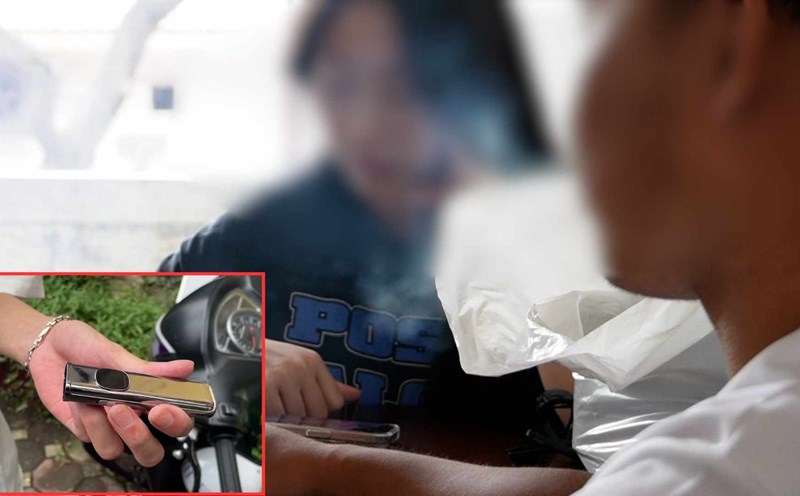Ms. N.T.Q.N (38 years old, Thu Duc City, Ho Chi Minh City) was hospitalized with a series of blisters and blisters around her mouth and body, accompanied by a severe burning pain.
A few days ago, she just thought she had conventional sore throat, so she went to a pharmacy near her home to buy medicine and took it without a doctor's prescription. After drinking, the body began to have strange reactions and the condition became worse. When she was admitted to Thu Duc Regional General Hospital, she was diagnosed with Stevens- Johnson syndrome, an extremely serious and rare complication of drug allergy.
According to Dr. Huynh Minh Nhut - Department of Infectious Diseases, Thu Duc Regional General Hospital, Ho Chi Minh City, the patient was fortunate to receive timely treatment. After 5 days of intensive care, the water bills gradually dried up, did not continue to spread, and the clinical condition became more stable. However, if hospitalization is delayed, the risk of death is entirely possible. This is not a rare case.
Recently, the department has received many patients with this syndrome consecutively, and the common point is that most of them arbitrarily take medicine without a doctor's prescription.
Stevens- Johnson syndrome (SJS) is a severe allergic reaction, often caused by drugs. Although the incidence rate is quite low - about 1 to 7 people per 1,000,000 people per year - the danger level is very high. The disease often starts with flu-like symptoms such as fever, fatigue, sore throat, then appears purple red spots, spreading to the lining, necrosis and skin subsidence. The damage is mainly concentrated in the skin and natural holes such as the eyes, mouth, nose, genitals, causing pain, inability to eat and drink, and at risk of blindness and severe infection.
The main cause of SJS is the use of antibiotics such as antibiotics (penicillin, cephalosporin, cotrimoxazol), gout treatment (allopurinol), anti-concussion drugs (phenytoin, carbamazepin), non-steroidal anti-inflammatory drugs (ibuprofen, diclofenac) ... In addition, a few cases are still caused by viral infections, bacteria, endocrine disorders, or special allergic reactions. People who have a history of drug allergies are at higher risk of recurrence if they reuse that drug.
SJS treatment requires inpatient treatment at a hospital with close monitoring. The first principle is to immediately stop the medicine suspected of causing an allergy. Depending on the severity, the doctor will prescribe painkillers, anti-inflammatory drugs, high-dose corticosteroids, or immunosuppressants and globulin for int int int most. At the same time, patients need to have skin care, hydration - electrolytes, monitoring complications in the liver, kidneys, eyes, digestive tract, etc.
According to Dr. Nhut, Stevens- Johnson syndrome is difficult to completely prevent, but the risk can be reduced if people raise their awareness of not buying drugs on their own, especially specific medications. For people who have been allergic to drugs, absolutely do not reuse the drug that caused a reaction. Because if reused, the next time it can cause anaphylactic shock or progress much more severely than the first time.
Stevens- Johnson syndrome is a strong warning about the current popular habit of self-medication. Every drug, no matter how small, needs to be prescribed by a doctor and medical supervision. Subjectivity in treatment can cost you your life.











